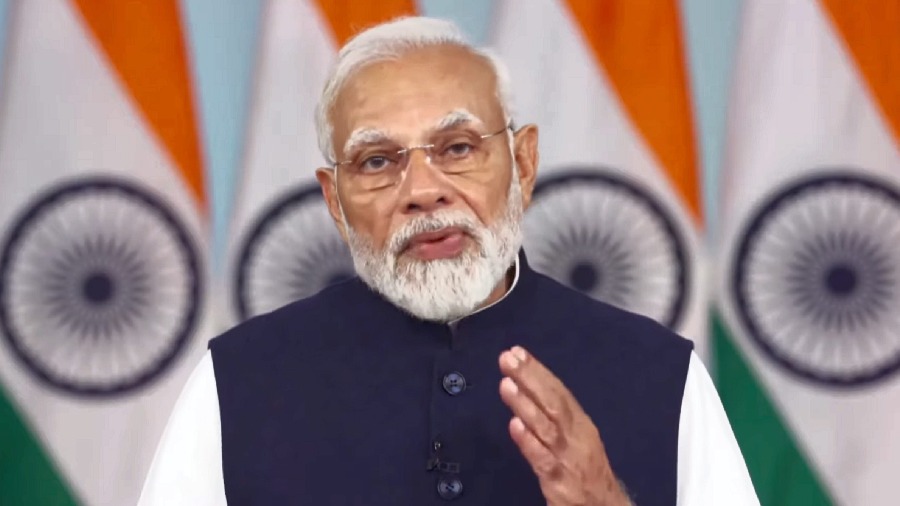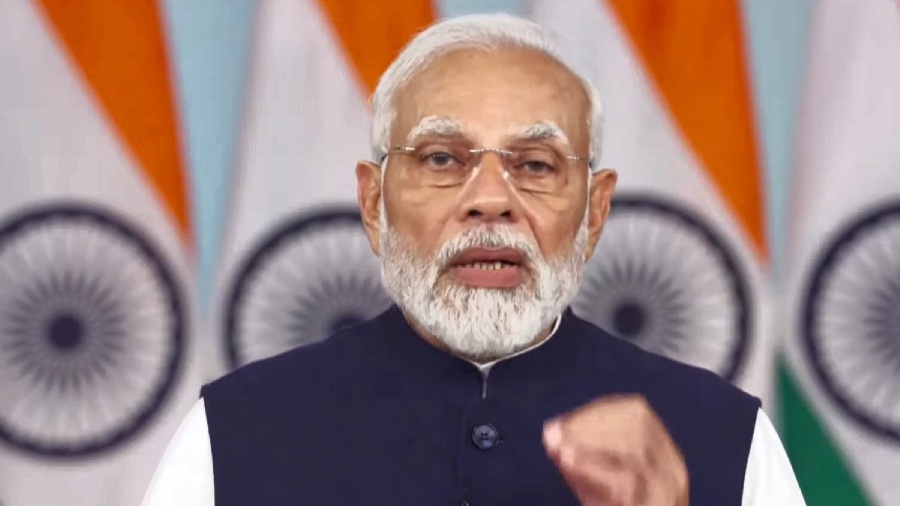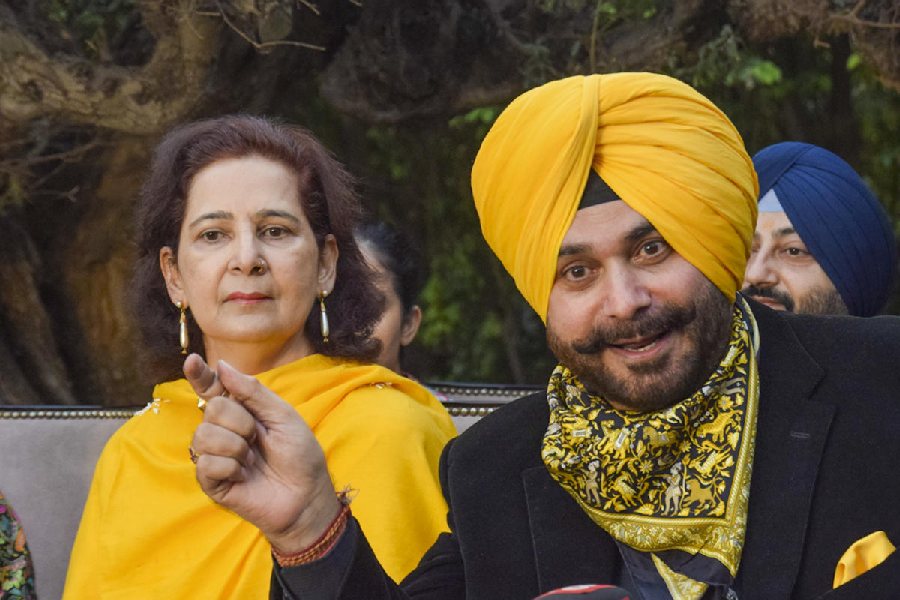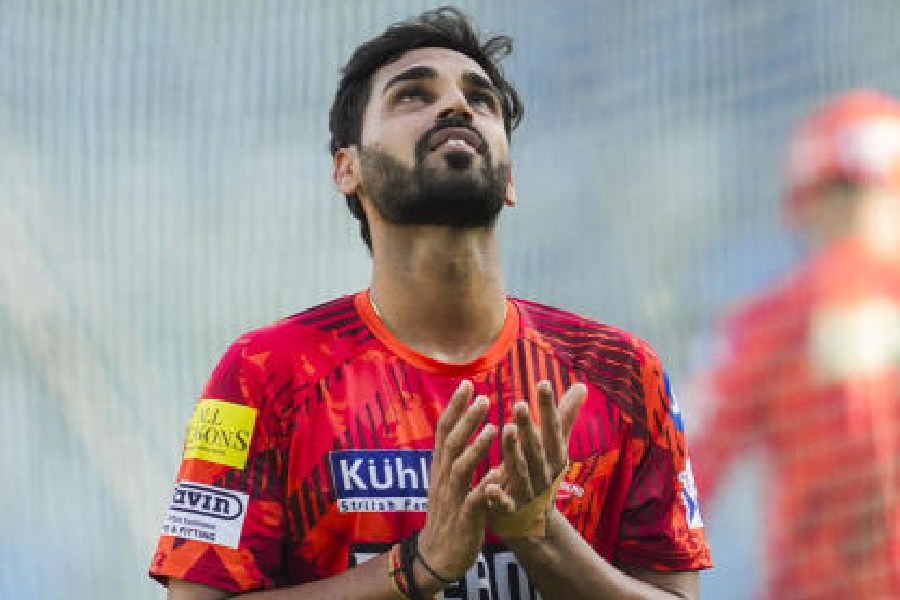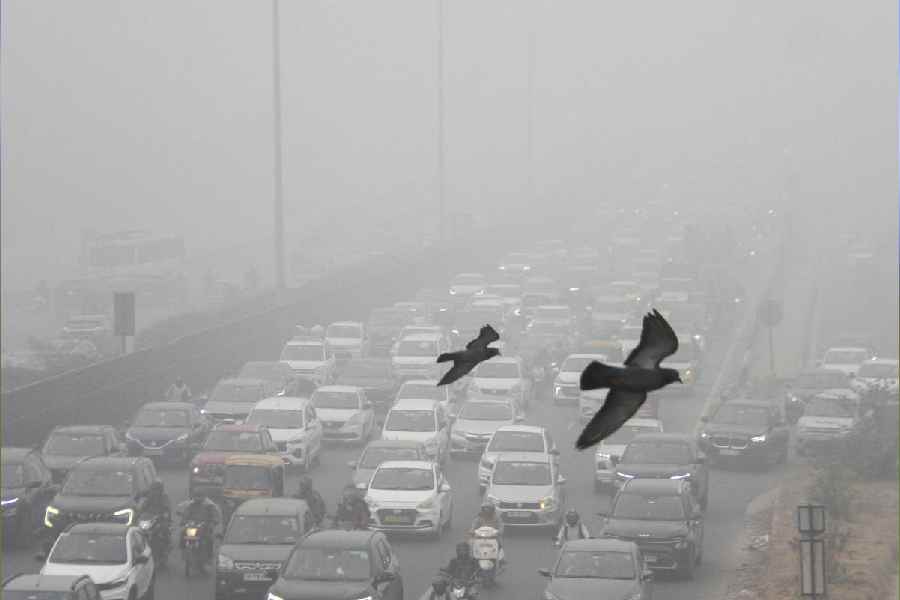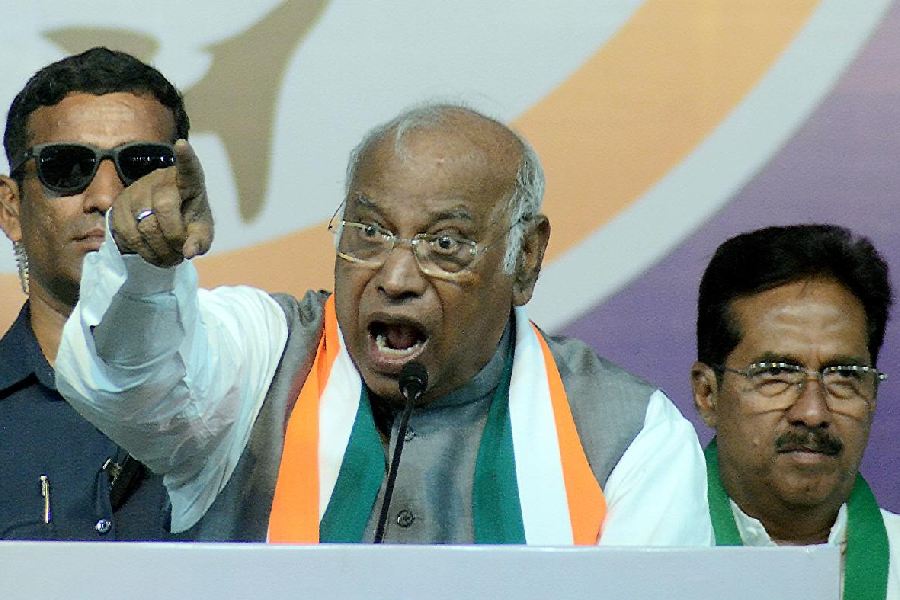Prime Minister Narendra Modi on Friday flagged the threat of unsustainable debt facing some developing nations as he called upon the Group of 20 (G20) nations to focus on the world's most vulnerable citizens.
Trust in international financial institutions has eroded partly because they have been slow to reform themselves, he said in a video message at the start of the two-day meeting of G20 finance ministers and central bank governors.
He referred to rising geopolitical tensions in different parts of the world but did not make any direct reference to the war in Ukraine.
"Financial viability of many countries is threatened by unsustainable debt levels," the prime minister said. "It is now up to you - the custodians of the leading economies and monetary systems of the world to bring back stability, confidence and growth to the global economy." A combination of ravage caused by the pandemic and high debt has driven nations around India, including Sri Lanka and Pakistan to bankruptcy. They are now knocking on the doors of global lending institutions for restructuring loans.
Modi acknowledged "it's not an easy task" but urged the nations to work collectively to strengthen multilateral banks for meeting global challenges like climate change and high debt levels.
"Trust in international financial institutions has eroded. This is partly because they have been slow to reform themselves," he said urging for discussion to "focus on the most vulnerable citizens of the world." The meeting here is the first major event under India's G20 presidency and coincided with the first anniversary of Russia's invasion of Ukraine that has killed thousands and forced millions of people out of their homes.
"We are also witnessing rising geopolitical tensions in different parts of the world. There are disruptions in global supply chains. Many societies are suffering due to rising prices," Modi said.
Stating that at a time when the world is facing serious economic difficulties, he said the COVID-19 pandemic has delivered a once-in-a-century blow to the global economy. Many countries, especially developing economies, are still coping with its after-effects.
"However, I hope that you will draw inspiration from the vibrancy of the Indian economy. Indian consumers and producers are optimistic and confident about the future. We hope that you will be able to transmit the same positive spirit to the global economy," he said.
"Only by creating an inclusive agenda will the global economic leadership win back the confidence of the world. The theme of our G20 Presidency also promotes this inclusive vision 'One Earth, One Family, One Future'." The prime minister said in the world of finance, technology is increasingly dominant. During the pandemic, digital payments enabled contactless and seamless transactions.
"However, some recent innovations in digital finance also pose risks of destabilization and misuse," he said. "I hope that you will explore how the power of technology can be used for good, while developing standards to regulate its possible risks."
"India's own experience," he said, can be a model. "Over the past few years, we have created a highly secure, highly trusted, and highly efficient public digital infrastructure. Our digital payments ecosystem has been developed as a free public good. This has radically transformed governance, financial inclusion, and ease-of-living in India."
The meetings over two days are expected to touch on a wide range of issues, including digital currencies and payments, reform of institutions like the World Bank, climate change and financial inclusion.
Except for the headline, this story has not been edited by The Telegraph Online staff and has been published from a syndicated feed.

